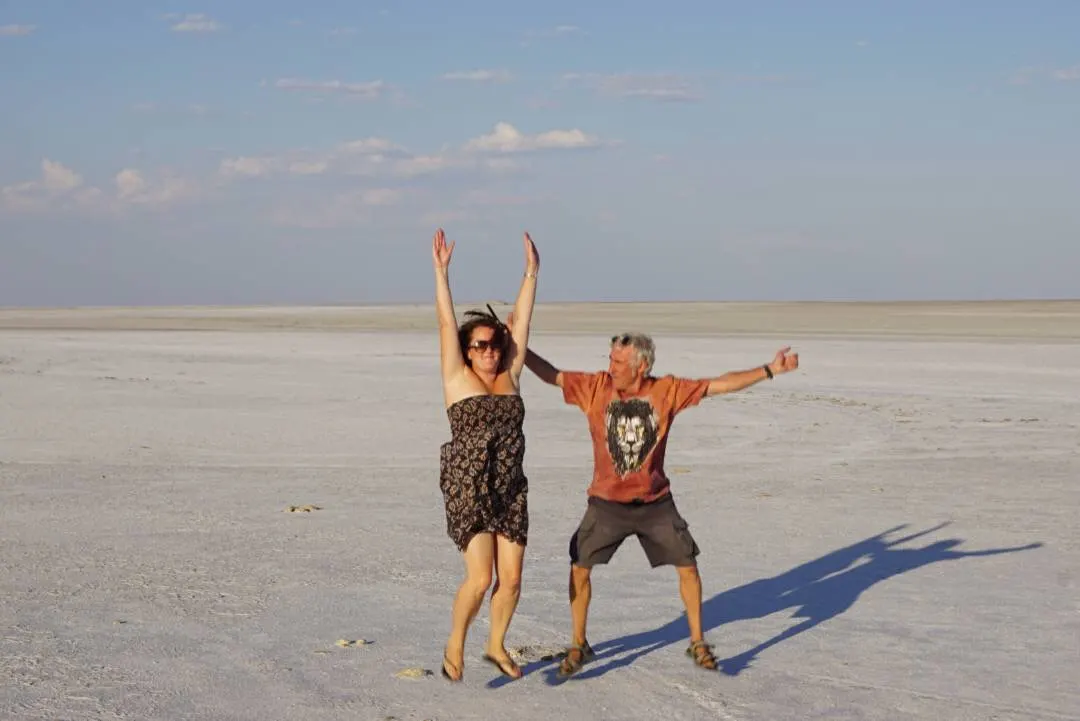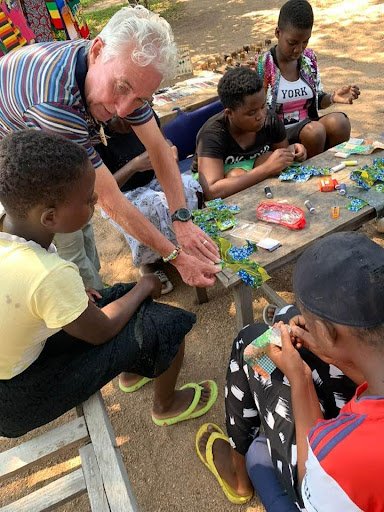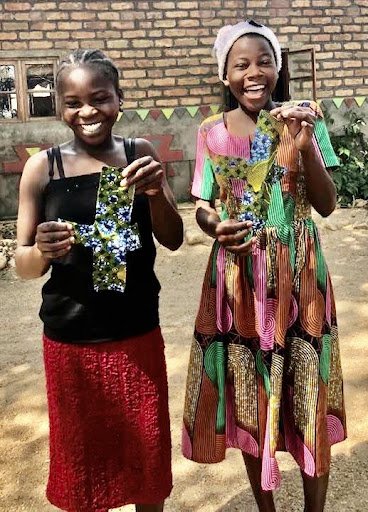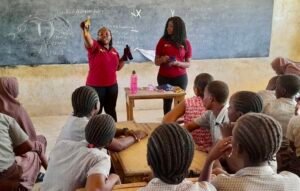No products in the cart.

Empowering Women Across Africa: UK Couple’s Journey to Period Dignity
For the past seven years, Leanne and Steve, a compassionate duo from the UK, have embarked on a remarkable journey across Africa, not merely as travellers but as educators and catalysts for change. Their mission? To empower women and girls by teaching them the invaluable skill of crafting washable period pads, combating the stigma and challenges surrounding menstrual hygiene.
Leanne, a former headteacher, and Steve, previously in the electrical supply industry, found inspiration from distressing news articles about menstrual poverty and the taboo associated with periods in Africa. “We understand the significance of girls staying in school and the workplace without interruptions,” they share.

Stitching Hope: Teaching a Skill That Matters
Their initiative has spanned across Zanzibar, Malawi, and Zambia, reaching between 250 and 300 girls and women through workshops focused on menstrual health and hygiene. “We start with education about menstruation, demonstrate pad usage, discuss materials, washing, and adaptability,” they explain. These workshops aim to break down barriers and create a safe environment for open discussions.
Leanne and Steve have witnessed firsthand the challenges faced by women and girls regarding access to menstrual products in these regions. “Lack of funds often forces the use of unhygienic materials, leading to infections,” they reveal. They’ve observed the profound impact of the taboo associated with menstruation, resulting in a lack of knowledge and opportunities for open discussions.
Crafting Dignity from Recycled Materials
Their journey to learn the skill of making washable pads began in Tanzania, where they met Maja Kotala, founder of Sewing Together. Through Maja’s guidance, they acquired the knowledge to teach this skill as they travel, using upcycled materials sourced from various sources, including local markets and supermarkets.
“The pads have been life-changing for many,” they affirm. Participants not only gain the skills to create pads but also the confidence to continue making them independently. The reusable nature of these pads, made from upcycled materials, ensures sustainability and independence. Importantly, it enables women and girls to stay in school and at work during their menstrual cycle.
Tackling Logistics and Triumphs
Cultural and logistical obstacles have surfaced, demanding inventive navigation. Some tribes’ cultural norms involve no use of underwear, while financial constraints deprive some rural women and girls of this necessity. Sensing this, Leanne and Steve now provide underwear for those in need during their workshops.
“Venue constraints have been challenging,” admits Steve. Some locations lacked basic amenities like tables or shade. Flexibility and creativity became key, utilising innovative workstations to adapt to these limitations.
However, the most formidable hurdle has been managing group sizes. “Our ideal is 10-15 participants per session,” Leanne explains. However, overwhelming interest often doubles or triples the numbers. “We strive to accommodate all,” Leanne expresses, describing how they occasionally extend sessions or schedule additional workshops to include everyone.
Addressing visual impairments among older participants due to poor eyesight has also been a priority. Leanne and Steve now provide different strength glasses, ensuring full participation in the workshops.
Yet, these hurdles have been accompanied by moments of revelation. “Seeing the joy on the faces of the girls and women when they complete the pads is incredible,” Leanne shares, the sense of accomplishment evident in their smiles. The workshops foster an environment where teachers, staff, and adults also eagerly join, amplifying the impact.
Leanne and Steve have found solace in the camaraderie, laughter, and impromptu dance celebrations that erupt post-workshop. “These spontaneous expressions of gratitude are priceless,” says Steve. Making new connections through these workshops has proven to be an unexpected yet rewarding outcome.

Seeking Sustainable Solutions Amidst Challenges
Sourcing materials while travelling has posed its own set of challenges. “It’s not always easy to find the right materials,” they explain. Buying from markets as tourists often results in inflated prices, a hurdle they mitigate by seeking advice from locals to buy in bulk.
Funding has been crucial. While they’ve received donations and support from various clubs and connections, they aim to leave resource packs with groups to enable independent pad-making. “Feedback from the participants is essential,” Leanne stresses, expressing their commitment to refining their approach based on the workshop experiences.
Paving the Way Forward: Future Aspirations and Advice
Their aspirations include empowering more women, leaving resource packs with communities, and gaining feedback for improvements. They advise aspiring initiatives to focus on making connections, selecting suitable venues, sourcing materials efficiently, and planning opportunities for review and impact assessment.
Through their unwavering dedication, Leanne and Steve have woven a tapestry of empowerment and dignity, ensuring that menstrual health is no longer a barrier but a stepping stone to a brighter future for women and girls across Africa.
Brightening Futures, One Washable at a Time.


